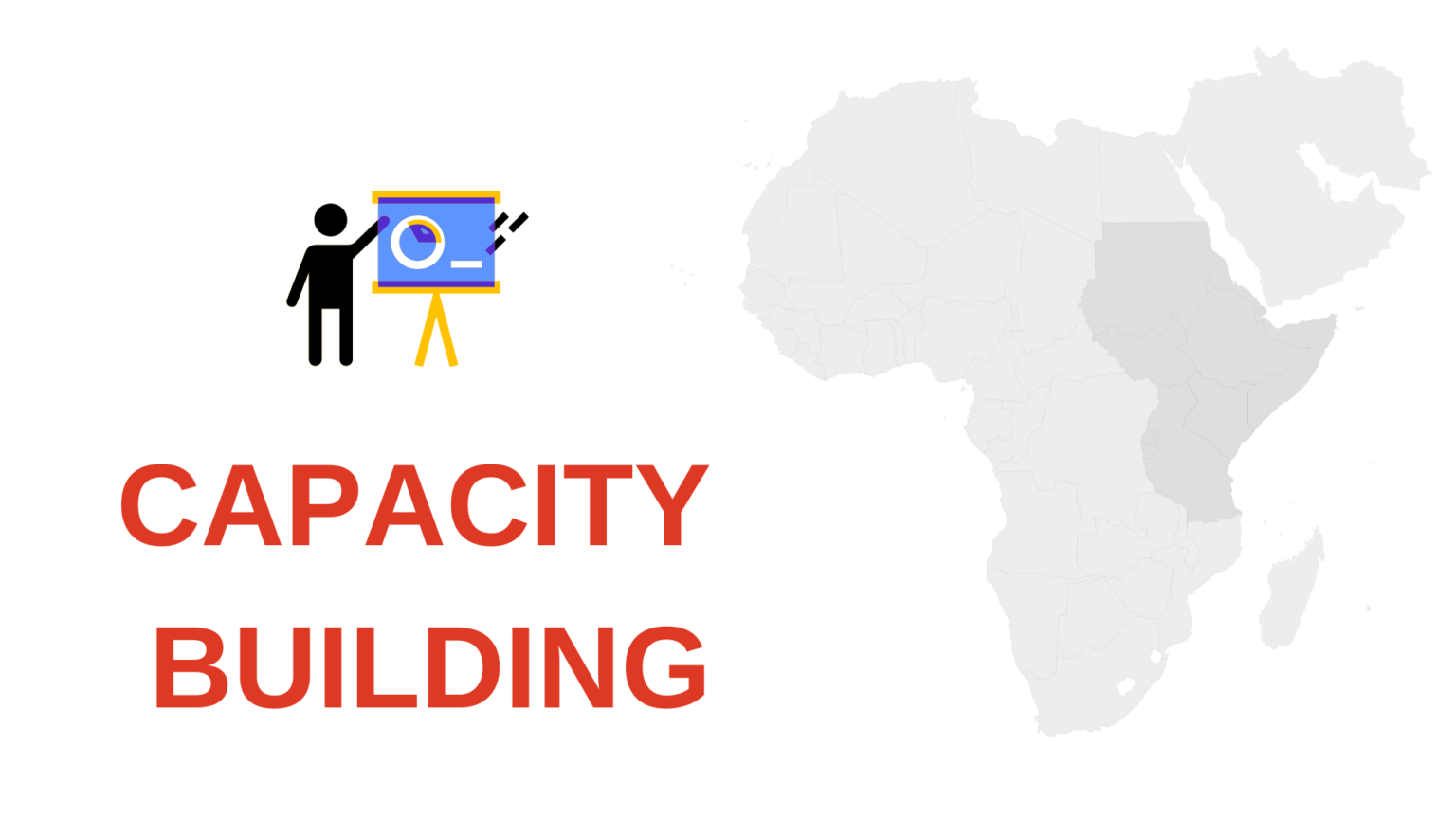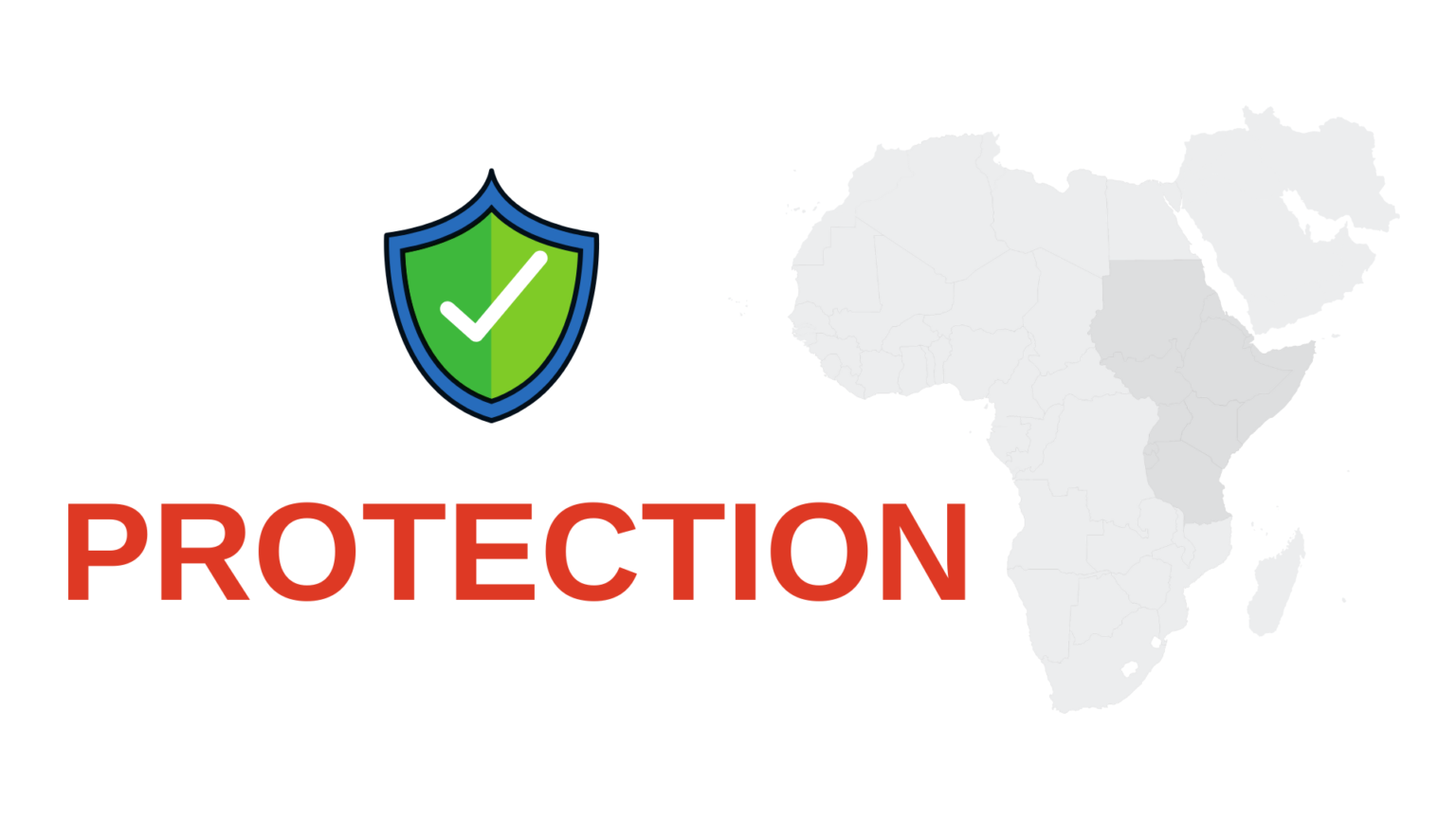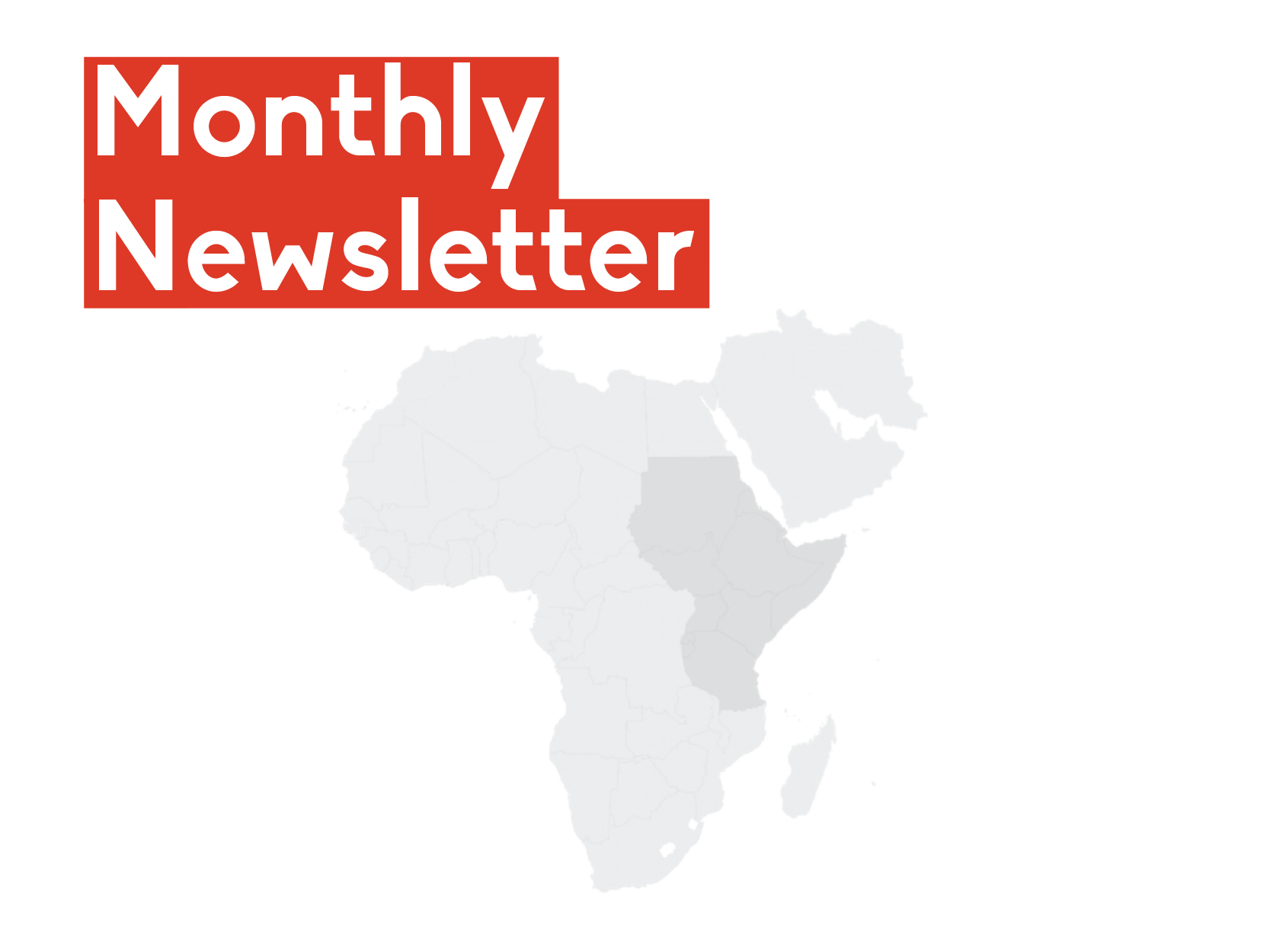Hello
Friends,
Since
August 2024, I’ve had the privilege of participating in two missions to Somalia
aimed at assessing the current landscape for human rights defenders (HRDs). The
primary objective of these missions was to revitalise the National Coalition of
Human Rights Defenders Somalia by supporting the establishment of new
leadership and an active board capable of addressing the evolving challenges
HRDs face in the country.
I
am pleased to share that significant progress
has been made. A new governance framework was developed, expanding the capacity
of the Coalition’s secretariat and enhancing protection mechanisms with clear,
strategic objectives. As a result, board members were nominated and confirmed
for a once-renewable three-year term. On 14 May 2025, the Board of Defenders
Coalition Somalia convened for its first official meeting since the Coalition’s
establishment ten years ago.
Turning
to events in Uganda, seven years ago, DefendDefenders convened its first
interactive dialogue between protection service providers and exiled HRDs in
Uganda. This engagement led to the creation of the Exiled HRDs Working Group,
now representing voices from across the East and Horn of Africa. This month, we
hosted the fifth Protection Service Providers Meeting, an important platform
for fostering understanding, identifying protection gaps, and strengthening
support for HRDs living in exile.
This
space allowed exiled HRDs to share experiences, propose solutions, and engage
with both the Ugandan government and key stakeholders in the refugee protection
space. I commend Uganda’s continued open-door policy, which offers safety to
many fleeing persecutions. As the number of exiled HRDs grows amid regional
conflicts, the working group remains a vital channel for those fleeing from
their home countries; helping them remain resilient; offering the support they
need to adapt, rebuild, and continue defending human rights, even while far
from home.
Additionally,
in our advocacy efforts this month, DefendDefenders participated
in the 83rd Session of the African Commission on Human and Peoples’ Rights
(ACHPR), with Sudan high on our agenda. Two years since war erupted in April
2023, Sudan remains at the centre of one of the world’s most devastating
humanitarian and human rights crises; marked by mass killings, ethnic
cleansing, sexual violence, enforced disappearances, and the destruction of
entire communities. At the close of the public session, the Commission adopted
several thematic resolutions, including a country-specific resolution
extending the mandate of the Joint Fact-Finding Mission (JFM) in Sudan. This
extension signals the ACHPR’s sustained attention and engagement on the crisis,
which I warmly welcome.
As
always, DefendDefenders remains steadfast in its commitment to protect those
who risk their lives for freer civic spaces. I invite you to turn the pages for
details of our engagements this month.
Hassan Shire
Executive
Director, DefendDefenders
Chairperson, AfricanDefenders
Human Rights Defender of the Month: Pacifique Nininahazwe

Pacifique Nininahazwe’s journey as
a human rights defender is intertwined with the work of DefendDefenders, which
has stood with him during the most challenging moments of his activism. As
Chair of the Forum pour le Renforcement de la Société Civile (FORSC),
Burundi’s main civil society platform. Pacifique collaborated with
DefendDefenders on several initiatives, including the landmark Claiming
Spaces event in Bujumbura in 2014. This pivotal gathering laid the
foundation for the establishment of the Burundian Coalition of Human Rights
Defenders, where Pacifique played a role in its creation and later
revitalisation.
“I came to know DefendDefenders during the second half
of 2009. In November that year, they supported my evacuation and temporary
relocation abroad. It was a very difficult period for FORSC and for me. This
organisation taught me, and
many other HRDs in Burundi, the
very concept of a human rights defender, and everything related to their
physical and digital security.”
Updates from DefendDefenders

From
2 – 6 May 2025, DefendDefenders conducted a Change Makers Training in Lusaka,
Zambia, bringing together 14 artist human rights defenders from West Africa.
The training aimed to build the capacity of artist human rights defenders to
effectively utilise digital tools for creative expression and human rights
advocacy in the digital era. Participants were introduced to the concept of
artists as human rights defenders and trained on using various digital tools to
document, analyse, and visualise human rights issues. The workshop also
equipped them with the skills to develop, implement, and manage digital
advocacy campaigns in a safe and secure manner.
From
5 to 9 May 2025, DefendDefenders conducted a Safe Sister training in Kampala,
Uganda. The five-day training brought together nine women human rights
defenders (WHRDs) from DRC Goma, Tanzania, Kenya, DRC Kinshasa, Sudan, Uganda,
South Sudan, Somalia, and Ethiopia. The training aimed to strengthen
participants’ capacity in digital safety to help them better mitigate, manage,
and respond to digital threats. It also sought to foster a growing network of
women digital safety practitioners. Through interactive sessions—including
practical exercises, simulations, group work, and guided discussions—the WHRDs
built essential technical skills and peer-to-peer support systems to enhance
their safety and resilience in the face of growing digital risks.
Between
18-27 May 2025, DefendDefenders hosted its inaugural Ttaala training in West
Africa, Abuja, Nigeria. The training brought together 10 participants from
Anglophone West Africa, five
women and five men, from
Ghana (1), Cameroon (4), and Nigeria (5). The initiative focused on digital
security and wellbeing, equipping artists with knowledge and skills to protect
themselves from threats while advocating for human rights. The training also
covered practical topics such as secure online communications, data literacy,
digital data collection and documentation tools, data visualization tools, and
online campaign development, management, and execution, enabling artists to
leverage data-driven creativity and advocacy.
On 20 May 2025, DefendDefenders, in collaboration with
the Human Rights Defenders in Exile Working Group, hosted the 5th Interactive
Dialogue on Human Rights Defenders in Exile and Protection Service Providers in
Kampala, Uganda. The event brought together 104 participants, including exiled
HRDs, legal experts, government representatives, and protection service
providers. The dialogue aimed to recognize the role of the Government of Uganda
in supporting refugees and asylum seekers, reflect on the impact of DefendDefenders’
efforts to safeguard exiled HRDs, and address ongoing challenges surrounding
their protection, sustainability, and well-being.
On
26 and 27 May, DefendDefenders, in partnership with the LEAD Initiative, held
an advocacy training with 8 environmental human rights defenders (EHRDs)
focused on strengthening advocacy for environmental rights at multilateral
international advocacy spaces such as the United Nations Framework Convention
on Climate Change (UNFCCC) Conference of the Parties (COP30). The training
brought together EHRDs from Uganda, Kenya, and Tanzania.
From
26 – 30 May 2025, AfricanDefenders participated in CIVICUS’ WeRise Cohort II
onboarding week held in Abuja, Nigeria. The event brought together social
movement representatives from Africa, Asia, the MENA region, and Latin America,
fostering cross-regional solidarity and collaboration. Insights were shared on
the work of DefendDefenders and AfricanDefenders in supporting HRDs across the
continent, underscoring their commitment to reducing the risks HRDs face
through tailored protection interventions, while also building resilience
through targeted capacity building initiatives.
Between 26 – 30 May 2025, DefendDefenders conducted a five-day
training for 13HRDs representing eight organisations from Amudat, Nakapiriti,
and Moroto districts. The participants developed eight organisational safety
and security plans to enhance the resilience of each organisation and its staff
to continue their human rights and humanitarian work in the volatile
environments of the Karamoja region.

DefendDefenders
and AfricanDefenders supported 20 human rights defenders (HRDs) from East and
the Horn of Africa, North Africa, and West Africa to actively participate in
the 83rd Ordinary Session of the African Commission on Human and Peoples’
Rights (ACHPR), held from 2 – 22 May
2025. This important civil society gathering provided a vital platform to shape
key narratives, amplify underrepresented voices, and highlight pressing human
rights issues affecting HRDs on the continent. Through panel discussions during
the public session, bilateral meetings, and side events, the Addis Ababa
Roadmap served as a guiding framework in this session to strengthen
collaboration between the ACHPR and United Nations special procedures,
particularly in responding to crises and enhancing protection for HRDs. These
joint efforts fostered synergy between the work of the UN Human Rights Council
and the ACHPR, reinforcing a commitment to deepen cooperation between the two
systems and bolster protection mechanisms for HRDs and victims of human rights
violations.

Between 1 and 31 May 2025, DefendDefenders, through its emergency protection program, received and processed 71 requests for urgent assistance. Of these, 23 requests were addressed with appropriate interventions, indirectly benefiting 42 individuals. Meanwhile, 23 requests were declined, and 8 were referred to other mandated protection service providers. Seventeen requests remain under review and are currently undergoing the vetting process.
Country Updates:
COUNTRY
SITUATION
KENYA
On
2 May 2025, four Kenyan filmmakers; Nicholas Gichuki Wambugu, Brian Adagala,
MarkDenver Karubiu, and Chris Wamae, were arrested
in a late-night raid on their studio in Karen, Nairobi, in connection with the
BBC exposé Blood Parliament, which documented police brutality during
the June 25, 2024 Finance Bill protests. Their equipment, including cameras,
hard drives, laptops, and phones, were confiscated, and they were initially
held at Muthaiga and Pangani police stations without formal charges or access
to legal counsel. Human rights groups and the Kenya Film and Television
Professionals Association
condemned the arrests as a flagrant attempt to intimidate journalists and
suppress evidence of state violence. Although they have since been released
on free bond pending bail, their equipment remains withheld and legal teams are
mobilizing to challenge the detention and defend freedom of expression
On
30 May 2025, Kenyan software developer Rose Njeri was arrested
while attending a tech training session along Enterprise Road in Nairobi.
Officers from the Cybercrimes and Serious Crimes units took her into custody
for developing a website that enabled Kenyans to submit objections to the
controversial Finance Bill 2024–2025 with a single click. The site quickly
gained traction after she shared it on her X account, drawing widespread
support from citizens, particularly youth, opposing the bill. Her arrest has
sparked public outrage and condemnation from civil society, who view it as an
attempt to silence digital activism and suppress dissent. The Finance Bill,
which proposes steep tax hikes and other punitive measures, has triggered a
sustained protest movement led by Kenya’s Gen Z. Since the protests began in
June 2024, at least 60 people have been killed, 361 injured, and more than
2,000 arrested, according to human rights groups. In addition, 82 cases of
enforced disappearances have been documented, with at least 60 people still missing.
As the one-year anniversary of the protests approaches, Njeri’s arrest serves
as a stark reminder of the continued efforts to stifle public participation and
criminalise dissent in Kenya.
BURUNDI
On 13 May 2025, IFEX reported a disturbing rise in violence and intimidation against journalists in Burundi ahead of the June elections, with authorities remaining largely silent and failing to protect media workers. Despite repeated attacks ranging from physical assaults to threats and harassment perpetrated mainly by members of the ruling party’s youth wing, the Imbonerakure, there is no meaningful investigation or accountability. The climate of fear has severely constrained press freedom, with journalists facing arrests, disappearances, and censorship. Independent media outlets continue to be targeted, further shrinking the already restricted civic space. The lack of response from Burundian authorities underscores a troubling disregard for the rights and safety of journalists during a critical electoral period.
UGANDA
On
22 May 2025, Uganda’s parliament
passed the 2025 Uganda Peoples’ Defence Forces (Amendment) Bill, allowing
civilians to be tried in military courts for alleged offenses linked to the
army. This move directly challenges a January 2025 Supreme Court ruling that
declared military trials of civilians unconstitutional and ordered their
transfer to civilian courts. The African Commission on Human and Peoples’
Rights has similarly condemned military jurisdiction over civilians. Human
Rights Watch has documented numerous abuses in military trials, including lack
of due process and political targeting, notably against opposition figures like
Kizza Besigye. The amendment raises serious concerns about the erosion of
political freedoms ahead of Uganda’s general elections in early 2026, amid
growing repression of journalists and opposition supporters.
On
May 23 2025, Uganda’s military accused
European Union diplomats, including German Ambassador Matthias Schauer, of
engaging in subversive activities and supporting anti-government groups. This
accusation follows increasing European criticism of human rights abuses by
Ugandan security forces. The military stated that some diplomats were
mobilizing on behalf of “negative and traitorous groups” opposed to
the Ugandan government. Germany has rejected the accusations, calling them
baseless. This situation has led to a diplomatic rift, with Uganda’s military
severing ties with Germany. The
accusations come amidst growing concerns about Uganda’s internal politics,
authoritarianism, and strained relations with Western allies. The situation is
further complicated by the fact that the Ugandan army chief, Gen. Muhoozi
Kainerugaba, is also the son of President Yoweri Museveni. Some reports indicate that
the German ambassador had criticized Kainerugaba’s controversial tweets in a
private meeting with EU diplomats, which may have triggered the accusations.
Uganda’s military has accused some European diplomats of actively supporting
groups that oppose the Ugandan government, and the military has stated that it
is severing all military cooperation with Germany. A few days later, The German
Foreign Ministry on 26 May 2025 dismissed
Uganda’s accusations that Berlin’s ambassador, Mathias Schauer, had been
involved in illicit meddling in the East African country’s affairs.
TANZANIA
On
May 19, 2025, Tanzanian opposition leader Tundu Lissu made a defiant appearance
in court for the first time since his arrest on April 9. Charged with treason
and the publication of false information, Lissu faces potential capital
punishment. During the hearing at Kisutu Resident Magistrate’s Court in Dar es
Salaam, he raised his fist in solidarity with supporters chanting “No reforms,
no election,” reassuring them, “We will be fine. Don’t worry at all.” Lissu had
previously refused to attend a virtual hearing on April 24, insisting on an
in-person trial. His CHADEMA party was disqualified from the upcoming October
elections due to its refusal to sign an electoral code of conduct, citing bias
favoring the ruling party, Chama Cha Mapinduzi. Despite the court acknowledging
his legal team’s concerns, Lissu has faced harsh detention conditions. He has
been held in the death row section of Ukonga Maximum Prison, denied private
consultations with his lawyers, and barred from attending religious services.
In response, Lissu decided to represent himself in court, highlighting both his
resolve to challenge the charges and the injustices he faces.
In a related development amid the tense political climate surrounding Tundu Lissu’s trial, on 19 May 2025, Agather Atuhaire and Boniface Mwangi were arbitrarily arrested in Dar es Salaam, Tanzania, by immigration and police officers. They were in Tanzania as part of a delegation to observe the trial of opposition politician Tundu Lissu, who has faced repeated crackdowns by the government. Following their arrest, they were taken to an unknown location, held incommunicado, and subjected to torture, beatings, and humiliation by individuals believed to be Tanzanian military personnel. After four days of detention and abuse, they were released. Their treatment has been widely condemned by civil society organizations, which are calling for urgent investigations and accountability. The incident has raised concerns ahead of Tanzania’s general elections scheduled for late 2025, with many fearing further human rights abuses and suppression of opposition voices.

